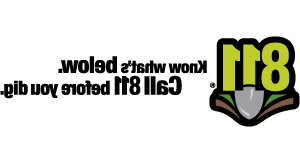Do's and don'ts on a Right of Way
A pipeline right-of-way can be an appealing spot for all kinds of activities. Some are used in municipal agreements as dog parks or play areas, and the cleared areas could be attractive to ATV’s or snowmobiles.
It can be easy to forget that a pipeline is operating below you, transporting the energy needed to heat homes and create the products we all use every day. That's why it is important to protect this critical infrastructure, which includes treating the right-of-way with respect.
If you would like to use or work on a ROW, it’s important to remember some basic guidelines to help keep you, the pipeline and your community safe. Here's some useful information to help you stay safe, and how to recognize and respond to a possible emergency situation.
Do you know what to do in case of a possible leak?
If you recognize any of the signs of a leak listed at the bottom of this page, you should follow these steps:
- Move away and upwind of the area, shutting off any machinery and avoiding use of any equipment or devices that could cause a spark.
- Call '911' as soon as you are in a safe location and describe the situation to the operator.
- Look for a nearby pipeline marker in a safe area for the pipeline operator's emergency contact number. TC Energy's emergency numbers can be found on our Contact page.
- Warn others to stay away and follow the instructions provided by the 911 operator.

Do:
- Respect the landowner – ensure you have permission to use the land
- Keep to the edges of the ROW – above-ground infrastructure can be hidden by snow or vegetation
- Report deep ruts, damaged signage or unusual activity to the pipeline operator
Don't:
- Light fires or have open flame
- Camp or park on the right-of-way
- Dig, trench or uproot trees and brush without prior approval
- Drive on, across or over the right-of-way without approval

Trail Users
Want to use a right-of-way? For everyone’s safety:
- Do not drive on, across or over the right-of-way without approval from the pipeline operator
- Follow all instructions provided in your crossing agreement
- No camping or fires
- Report deep ruts, damaged signs or unusual activity
- For questions or to request permissions or more information, contact us at:
| Canada | United States |
| 1-877-872-5177 | 1-800-562-8931 |
| crossings@andadoor.com | us_crossings@andadoor.com |
By following these guidelines, you can use the nearby right-of-way while ensuring the continued safe and reliable operation of the pipeline. If you ever see any unusual activity on the pipeline right-of-way, please contact the pipeline operator. Contact information can always be found on the nearest pipeline marker.
Life-saving information
Consequences of unsafe digging
Did you know that in most provinces and states, it is a legal requirement to contact your local One-Call service before digging or excavation? These cosequences may include:
Fines and repair costs to fix the underground utility
• Provincial, state or federal regulators can levy hefty fines to both the person excavating and the company responsible, depending on the local regulations
• Repairs to utilities often cost more than the value of your original project, not including reclamation and clean-up costs
Interrupted services such as electricity, gas and water
• Underground utilities carry essential and critical services for the community. Interruptions to these are more than just minor inconveniences; they can put people, businesses and livelihoods at risk
• Some utilities are buried as little as 12 inches below the surface, so even a simple shovel can cause serious damage
Risk of serious injuries and death
• Since 2008, the Pipeline and Hazardous Materials Safety Administration (PHMSA) has reported 715 injured workers and 79 fatalities due to damages done to underground infrastructures during excavation work*.
Frequently Asked Questions
I know where the pipeline is, do I still need to make a One-Call?
You can never be sure where underground utilities are unless they have been marked by a professional. Utilities can shift from erosion or natural forces or new ones may have been installed without your knowledge. Using the free One-Call service allows you to conduct your work safely.
How do I contact my local One-Call service?
Luckily there are resources to help you reach your local service easily. In Canada, you can visit www.ClickBeforeYouDig.com to find your local One-Call service, as well as other useful safe-digging rules and regulations in your province. In the U.S. you can dial 811 or visit www.call811.com to get in touch with your state’s provider.
When do I need to make a One-Call?
You need to make a locate request anytime you are disturbing the ground. This includes digging, piling material, paving or even driving equipment over a right-of-way. Any action that could impact something below the surface counts as ground disturbance.
What is a crossing agreement?
A crossing agreement is an agreement between you and the pipeline operator that allows you to conduct your work safely with the permission and understanding of the pipeline operator. Any changes to your work need to also be approved to ensure your safety.
How do I know if I need a crossing agreement?
If you plan to do any work on a right-of-way or access the right-of-way while conducting your work, there’s a good chance you need a crossing agreement. To find out for sure, you can either make a One-Call and wait for the pipeline operator to contact you, or you can contact the pipeline operator directly through their crossings team. Contact information can be found on this page.
What is the “prescribed area”?
The prescribed area is the area that extends 30 metres on either side of the pipeline centerline. Ground disturbance within this area requires written consent.
Signs of a potential pipeline leak

What you may smell
Natural gas
- Transmission lines that transport natural gas across Canada are rarely odourized, but may have a slight hydrocarbon smell. Distribution lines that transport natural gas to homes and businesses are odourized and could smell skunk-like or similar to rotten eggs.

What you may see
Natural gas
- Dead or dying vegetation on or near a pipeline in a normally green area
- Water bubbling or blowing into the air at a pond, creek or river
- Dirt being blown or appearing to be thrown into the air
- An accumulation of ice or frost over the pipeline (in the summer)

What you may hear
Natural gas
- A hissing, roaring or bubbling sound
Emergency contacts
Canada
In case of emergency, call:
1-888-982-7222
Contact our crossings team:
Apply for crossing online
1-877-872-5177
crossings@andadoor.com
quebec_crossings@andadoor.com
Landowner inquiries:
1-866-372-1601
cdn_landowner_help@andadoor.com
General inquiries:
1-855-458-6715
Public_awareness@andadoor.com

Emergency contacts
United States
In case of emergency, click here for contact numbers
Contact our US crossings team:
1-800-562-8931
us_crossings@andadoor.com
Landowner inquiries:
1-877-287-1782
General inquiries:
1-855-458-6715
Public_awareness@andadoor.com

Emergency contacts
Mexico
Call before you Dig:
01-800-111-3333
General Inquiries:
55-1100-2900
informacion_mexico@andadoor.com
